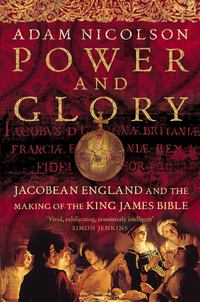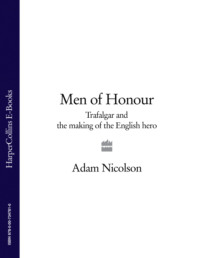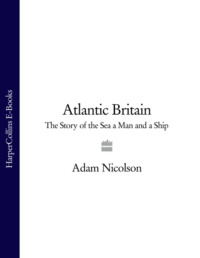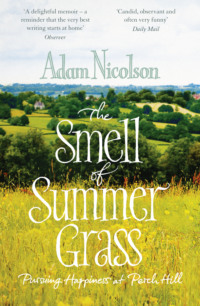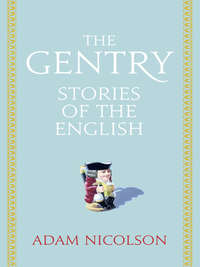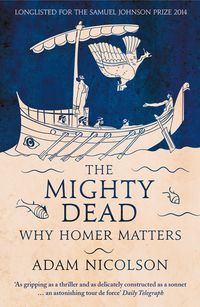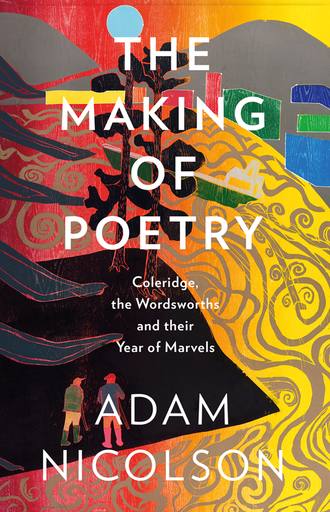
Полная версия
The Making of Poetry: Coleridge, the Wordsworths and Their Year of Marvels
walked as far as the poor sick girl, who is indeed in a most deplorable state. I am advised not to go in to her as she is in a kind of putrid state – and indeed my wife I believe does not go in, but we send her something every day.
For all these and other outrages, for all his own anxieties, affected by toothache and neuralgia, by hideous dreams and pervasive worry, Coleridge was always able to dance and balloon into unbridled delight at the beauties of existence. Many years later, thinking of this wonderful summer, he wrote a short and Blake-like poem, a spontaneous aria celebrating the rich simplicity of friendship as ‘a shelt’ring tree’, and all the joys
that came down shower-like,
Of Beauty, Truth and Liberty,
When I was young, ere I was old!
The ideal of friendship hovers over this whole story as its subtle and fickle if ministering angel, but it is not Coleridge’s aria as much as his description of how it came to him that opens the door on to the form and habits of his mind in 1797. The poem was ‘an air’, he wrote, remembering the year of his youth in Somerset,
that whizzed δία ẻνκέφαλου [dhia enkephalou] (right across the diameter of my Brain) exactly like a Hummel Bee … close by my ear, at once sharp and burry, right over the summit of Quantock at earliest Dawn just between the Nightingale that I stopt to hear in the Copse at the foot of Quantock, and the first Sky-Lark that was a Song-Fountain, dashing up and sparkling to the Ear’s eye, in full column, or ornamented shaft of sound in the order of Gothic Extravaganza, out of sight, over the Cornfields on the Descent of the Mountain on the other side – out of sight, tho twice I beheld its mute shoot downward in the sunshine like a falling star of silver.
It is a paragraph that describes quickness but must be read slowly, the trace of Coleridge’s mind in the process of thinking: a bumblebee shooting past his ear half a lifetime before, holding the space between nightingale and skylark, whose song is now in his memory like a mountain stream in the eye of the ear (!), then becoming a high, rippling, barley-twist column of knobbled medieval beauty, but invisible, the bird itself disappearing into the wide lit spaces of the sky, but its mute, its droppings, gliding out of that ecstatic empyrean with the brilliance and glitter of a streaking meteor, a blob of mercury hurtling from the blue. Could there ever be inconsistency in a mind that thought like this? In which such potent synaesthesiac category-shifts dissolved all boundaries of time and space? In which inconsistency felt like the pulse of life?
I know this stretch of country well. I spent most of my twenties on foot, disenchanted with the world of cities. Paying for myself by writing about it in newspapers and magazines, I walked thousands of miles here in England, the same in France, and then in Europe, in Greece and Italy, not in pursuit of anything in particular except perhaps the reassurance of being able to engage with the physical world day after day, in fog and rain and snow, in the burnishing sunshine, usually alone, sleeping out in a small tent or in mountain bothies or in Greece inside the flea-ridden chapels. I was merely doing what Wordsworth and Coleridge, by some subterranean routes, flowing through the thousands of capillaries in Western culture, had taught me to do. All the years of education seemed less important than this. I once walked sixty miles in twenty hours across the Cotentin in northern France, most of the day and then all night, with a friend, an Anglo-Saxon scholar who had become a soldier, and who Coleridge-like for mile after mile didn’t draw breath. We began at Cherbourg, had dinner in Briquebec, coq au vin and a bottle of wine. Had I read Alcuin’s letters? Should he learn Farsi? What effect would living in a granite world like the Cotentin have on your mind, on your expectations of the solidity of things? Every hour or so we smoked a cigarette, leaning against one of those granite walls, sitting on the verge. The sun rose on the Normandy beaches and we swam in the golden, blue-eyed surf.
What is it about walking for days on end? Partly it is the love of self-reliance, of not needing to be dependent on anything or anyone. It is psychically naked, with the curious effect that this self-reliance seems to make your own skin more permeable. Alone on foot, not in any great heroic landscapes – these are not high mountain singular mist-visions – but in just such a place as the Somerset Levels, where the knitted ordinariness of everyday life forms the texture of the landscape through which you move – the small farms, the stalled animals, the life of the hedges – you become absorbent, inseparable from the world around you. Walking in that way is a dissolution of the self, not a magnification of it, a release from burdens, in which all you have to do is walk and be, as plainly existent as grass growing, continuous with everything that is.
The great land-artist Richard Long was my hero, and I wrote to him, wanting to talk about his absorption in the walked line, but he replied courteously by letter to say that there was nothing much we could discuss that he or I didn’t already know. And I wondered then if Romanticism, to which this habit of being was clearly the heir, alone out on the road, scarcely communicative with anyone except the self, was little but a form of loneliness, and of legitimising loneliness by being alone.
I spent one of those summers in the Levels, dropping into just the relationship with the country that Coleridge and Wordsworth had invented here two centuries before, at exactly their age, in my mid-twenties. One long afternoon remains in my memory when the water in the summer Levels, as always, was penned up in the rhynes that divide the low, damp fields, making wet fences between them.
Each rhyne shelters a particular world of butterbur or kingcup, water-mint or a flashy wedding show of flag-irises. If you sit on the bank, the high water in the field soaks up into the cloth of your trousers, so that the invitation to swim, to move over from watery peat to peaty water, is irresistible. Slowly that afternoon I lowered my body into the blood-warm cider-soup, crusty with frog-bit and duckweed, with seeds and reed shells. My feet were in the half-mud of the rhyne floor, a soft half-substance as if I were sinking into the folds of a brain. The arrowhead and bulrushes quivered in my wash and away down the rhyne – or so I always imagined – the eels released their bubbles as they shifted away from the disturbance.
This was embeddedness. The breadth of the water grows as you come near it to a generous private width, lobed into by the irises and the reeds. The air is warm and heady. Away down the rhyne a swan claps its wings. The meadows riffle in the wind. Heat and vapour wobble in the air above them. Everything hangs in suspension, and your skin turns a golden unnatural brown in the whisky water. Three hundred and fifty million years ago all life was water-life, and to float in a summer rhyne seemed then like a return to ancientness, to the deepest possible co-presence with the earth.
That idea – that the contented life was the earth-connected life, even that goodness was embeddedness – had its roots in the 1790s, perhaps drawing on what Wordsworth and Coleridge had read of Rousseau, or perhaps inheriting from him as I had inherited from them. Co-presence with the natural world, a closeness that was inaccessible in what Coleridge always described as the ‘dim’ light of the city – the persistent coal smog of eighteenth-century London – was somehow a release into a form of wellbeing which normal political, commercial, professional or even educational life would not only fail to approach but would actually disrupt and destroy. It is a powerful connection to make: love of nature as the route both to a love of truth and to a love of man.
No room in the world was closed to Coleridge. As he said to a friend, ‘I hate the word but.’ Every connection needed to be an and. Every corridor and every chamber branching off it was available to the roaming, skipping investigations of his mind, not ponderous but almost gravity-free, and in each store and warehouse to which he pushed open the door he found lying in wait for him caves of beauty and significance.
He walked as he talked, never pursuing a single line direct, but famously moving from one side of the lane or the path to another so that his companion would always have to shift to accommodate him. His mode was multiple but not anarchic. He could not put up with nonsense, and consistently searched for systematic connections across the whole width of what he had to know. That was the essence of his life: a never-ending appetite for all that was and had been, struggling with the need to bring it into a single frame of understanding.
Any talk of mere personality he detested: there was more to wisdom than the idiosyncrasies of the individual. Nor did he live in an unbroken morning of bland optimism. Excitement and despondency alternated within him. And he knew of his own failings. Forgive me, he would remark to his listeners, if sometimes you hear in what I say a verb orphaned of its subjective noun or a subjective noun widowed of its verb. He could get lost in his paragraphs like a man in a thicket. His relationship to knowledge was so hungry that knowledge itself came to live in his mind as an infinite sequence of overlapping and self-generating circles, in which no understanding of one circle could be complete without an understanding of its neighbour, an unending progression of unfolding spheres, like the universes that expand from the black holes each one contains, a multiverse strung out across space and time. It is little wonder that even his great and encompassing mind eventually faded under the strain of the challenge.
The energy, if undeniable, was fervid and troubled, drawing into itself at different times schemes for everything: a book on the modern Latin poets, an Epic Poem on the Origin of Evil, something on William Godwin, an Opera, a Liturgy, a Tragedy, editions of English eighteenth-century poets, a book on Milton, on the Greek tragedians, on the technicalities of scansion, on the laws upon wrecks, a poem in the style of Dante on Thor, on his hero the philosopher David Hartley, on the obscurities of Behmen, Helmont, Swedenborg, Philo Judaeus, Porphyry, Plotinus, Platypus, Mesmer, an address to Poverty, on the art of prolonging life – by getting up in the morning, an Ode to a Looking Glass, hymns to the Sun, the Moon and the Elements, an Ode to Southey, an Ode to a Moth, a history of night, or of privacy, or of silence, or the self.
For I am now busy on the subject, and shall in a very few weeks go to Press with a volume on the prose writings of Hall, Milton and Taylor; and shall immediately follow it up with an Essay on the writings of Dr. Johnson and Gibbon. And in these two volumes I flatter myself I shall present a fair History of English Prose … I have since my twentieth year meditated an heroic poem on the Siege of Jerusalem by Titus. This is the Pride and the Stronghold of my Hope. But I never think of it except in my best moods.
It was a fountain of being, in which the pressure was always ready to flow, no urging needed. ‘My heart seraglios a whole host of joys,’ he wrote in his notebook, a new verb for the promiscuity of knowledge and happiness.
He knew too, in a way that was profoundly different from Wordsworth, that the endless liquidity of his self-conception, the flux and reflux of his mind, the stream of the organism called Coleridge, was the lens through which he perceived the world. He thought he had ‘a smack of Hamlet myself’, as a figure who partly observed and partly created the world around him. Hamlet’s thoughts, Coleridge said in his lectures on Shakespeare, ‘and the images of his fancy, are far more vivid than his actual perceptions, and his very perceptions, instantly passing through the medium of his contemplations, acquire, as they pass, a form and a colour not naturally their own’. What was within him imposed itself on what he saw. ‘All actual objects are faint and dead to him.’
He was aware that his perceptions of the outward world were so shaped by what he already knew and remembered that when, for example, he saw the moon, he did not see a moon but instead experienced ‘the dim awakening of a forgotten or hidden truth of my inner nature’. A nightingale’s song, or the sound of a stream as it fell and slid over the rocks in its bed, or the frost creeping over the roofs of the village, or the swifts screech-screaming in the streets of Nether Stowey, or Stowey’s own flowing gutter, or a cockerel in a farmyard holding its tattered tail aloft: all of these phenomena seemed to be aspects of himself. Anything his eye saw was ‘supported by the images of memory flowing in on the impulses of immediate impression’. Nothing was uninflected by what he knew, trying to find a steady path through the jangling crowd of objects vibrating in his brain.
He could be teased. He knew he was ‘a thought-bewilder’d man’, and he knew he wasn’t like the man who had once been his best friend, the poet Robert Southey. Southey, although undoubtedly capable of great and empathetic poetry, had an austerity and a self-preservative strictness about him. Coleridge had called him ‘a man of perpendicular Virtue … enlightened and unluxurious’. But those Roman virtues were accompanied by a deep self-regard. Southey was neat, clever, handsome, conceited, ‘a coxcomb’ in Wordsworth’s eyes, well-mannered and well-ordered, a man who, Coleridge thought, had surrendered his idealism – they had planned to set up a Utopian community together in America – to a rational and rather mean self-interest. In their bruising and final argument in 1795, when Southey had decided to abandon any communitarian plans, Coleridge had told him, ‘You are lost to me, because you are lost to Virtue.’ Southey was someone, as Coleridge wrote later, who had ‘the power of saying one thing at a time’. Can you imagine, one thing at a time! The sterility of it!
Coleridge knew he was not like that but instead ‘a Surinam toad’, a creature which has the habit of embedding her eggs in pouches set in the skin of her back. Up to a hundred of them can grow there, developing into little toadlets that, when the time comes, jump out of their nests, waving their tiny hands as they emerge and drop off their mother into the roadway, scattering around her like the pips from a pomegranate as she continues on her way through life.
That is the beautiful South American amphibian walking down the road to the Wordsworths on the afternoon of 4 or 5 June 1797 – the exact date is unclear – a man who investigates everything and strews and sprinkles his own progeny around him, a king with guineas at his own coronation, a fountain of largesse, the volcano of ideas. He knew of course how he did not conform to the required ideal of manly self-containment, and that he spawned plans like a herring, but he recognised there was beauty in that. Orderliness is no more than a narrowing funnel through which to experience the world. Every step an arrival is the walker’s credo; there can be no restrictive plot or narrative that remains true. That is the source of Coleridgean wonder. What happens happens, looseness is all and absorbency beauty. The good man blesses everything unawares.
‘Southey once said to me,’ Coleridge wrote to his son Hartley in 1820,
You are nosing every nettle along the Hedge, while the Greyhound (meaning himself, I presume) wants only to get to sight of the Hare, & FLASH! – strait as a line! – he has it in his mouth! –
Coleridge thought that the kind of remark a cannibal would make to an anatomist as he watched him dissect a body, commenting on the time the doctor was taking to prepare his dinner. Must a man wait a whole day before he is allowed to eat? But it was the journey Coleridge valued as much as the arrival.
The fact is – I do not care two-pence for the Hare; but I value most highly the excellencies of scent, patience, discrimination, free Activity; and find a Hare in every Nettle I make myself acquainted with.
That June afternoon, Coleridge, with a mind full of every hare in every nettle he had passed on the way, arrived at Racedown, the house in Dorset where the Wordsworths were living. Coleridge famously did not come down the path that led from the turnpike, but across the field, diagonally, over a gate in the corner, and bounding through the corn to the garden where Wordsworth brother and sister were working.
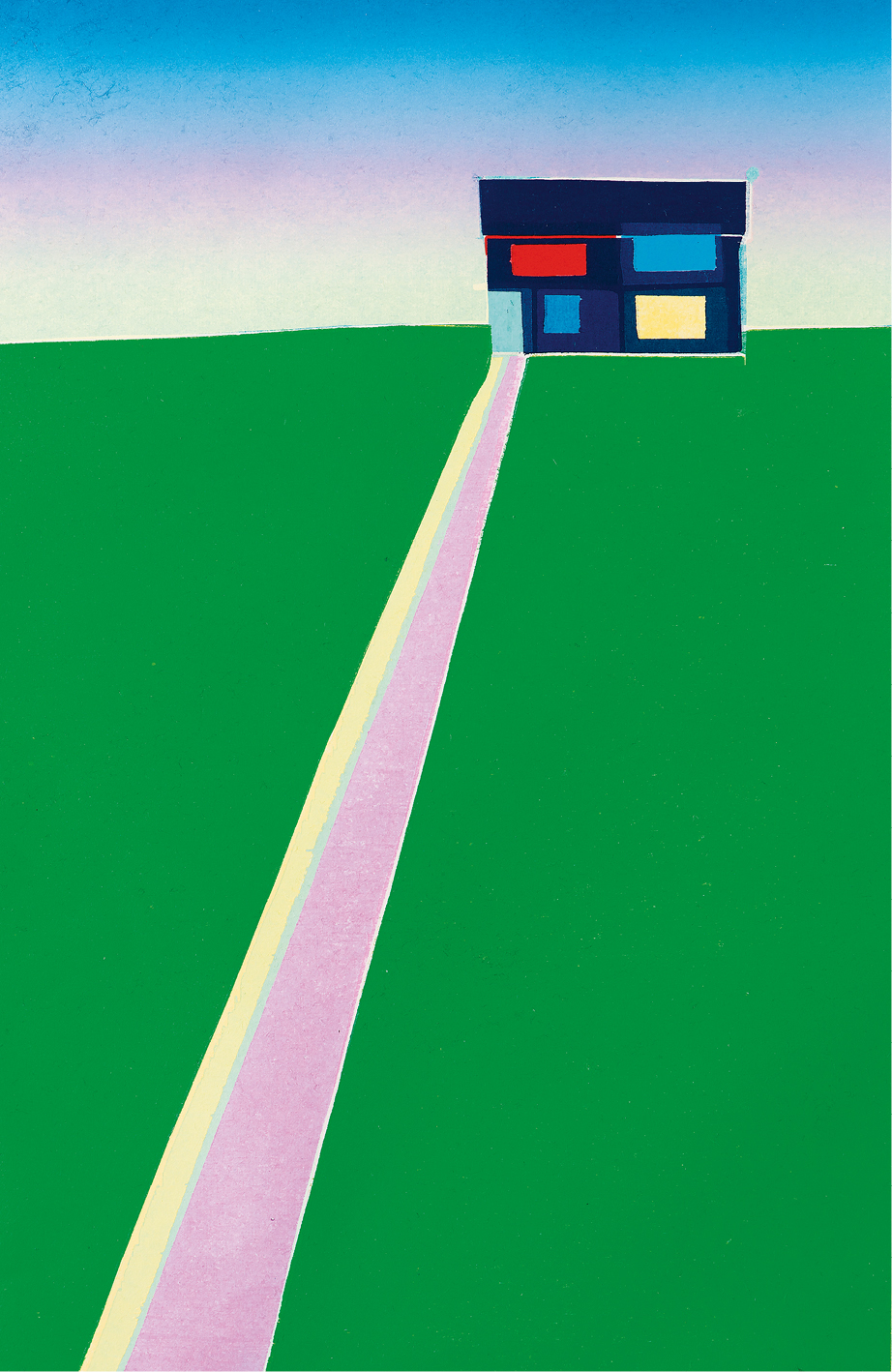
He comes like a comet to their door
It is rather a busy road now, with cars coming fast around blind corners, but Coleridge’s gate is still there, if almost never used nowadays, sagging on its hinges and half-buried in the strands of a hawthorn hedge. Through its straggling opening, one can look down at the house the Wordsworths were living in. There is no access for modern pilgrims, but this is what I imagine: Coleridge bursting down the slope where the corncrakes had been croaking, as they had been all summer, across the green corn that the farmer Joseph Gill had yet to cut or get the men to cut for him. Each blue-green spear standing in that field blazingly alive. The poet’s long leaping footsteps, looping up and over and into the corn, his legs swathed in it and breaking through it, with his bag on his hip swinging up and out at each extended pace, leaving a dragged wake of stems behind him, breaking what had been the perfection of that field, so that afterwards, that evening, looking up at the way by which he had arrived, his mark was there on the country like the tail of a comet or the track of a meteor or the blunderings of a dog in the corn.
The house itself was the opposite of everything Coleridge brought to it. It was a gentleman’s residence, a cliff of brick and grey stucco, sash windows, symmetry, multi-flue chimneys, outhouses, red stretchers with black headers laid in diaper-diamonds across its surface. ‘An excellent house’, Wordsworth called it to a friend; ‘a very good house, and in a pleasant situation’, his sister said. This was no poet’s cottage, and Coleridge casually referred to it in a letter to Cottle as ‘the mansion of our friend Wordsworth’. A tight parapeted formality confronted the visitor. There were two parlours, one with a fine Axminster carpet, one with an oil cloth on the floor, a kitchen and scullery, a pantry, a servants’ hall and a butler’s pantry. Above, four excellent bedchambers looked out over the willows and alders of the valley below the house, each chamber with a closet. There were four further bedchambers on the floor above.
Furnishings were not lacking: mahogany chairs and table, a tea chest and a reading stand, two bookcases filled with the classics and works of history and theology. There was a leather sofa, a pier glass in a gilded frame, a pianoforte, two blue and white Delft flower stands, a well-furnished hearth and a dinner service in Queen’s Ware. Linen sheets were provided, and Betty Daly, at one and a half guineas a year, plus two shillings a week when the gentlemen were in residence, could come in to air and clean the house and do the laundry. Peggy Marsh worked as her maid. Wineglasses, tumblers and decanters could be provided, but these were all to be returned to Joseph Gill, the manager of house, farm and adjoining brickyard, when not required. A picture of Leda, naked with swan, in a gilt frame, belonging to the owners of the house, the Pinneys of Bristol, slave-owning plantation landlords and sugar-traders, was not required by the Wordsworths, and had been packed up and sent away.
It seems in retrospect the most unlikely situation for a man on the lip of revolution, but beneath the surface there is a more complex set of social and emotional conditions in play.
Wordsworth, aged twenty-seven, and his sister Dorothy, a year and a half younger, are borrowing, not renting, the house. They cannot afford the rent, and it has been lent to them by two young radical Bristol friends, the Pinneys, who have not told their far-from-radical father that they have lent out his house for nothing. The Wordsworths are camping here, happy to find a temporary perch in their peripatetic and impoverished life. They are living – or meant to be living – on the proceeds of a legacy which a young friend of Wordsworth had left to him when he died two years earlier. Wordsworth has in turn lent the money out to two other London friends who are meant to be paying him interest – at a handsome 10 per cent a year – but who regularly fail to come up with the payments or are late in doing so. For pin money Dorothy is now making shirts for her brother Richard, a London lawyer, cutting and sewing the linen from a huge bolt delivered to the house, for which she is also hemming sheets.
The Wordsworths in their gentleman’s house have to borrow money from Joseph Gill, the farmer (himself a cousin of the Pinneys, but drunk and disintegrated after a life in the Caribbean), and are given coal during the winter by other neighbours. There is meant to be a gardener, but he is ‘saucy’ and won’t do what either Wordsworth or Gill asks him, so Wordsworth does some of the gardening himself, uprooting hedges, planting potatoes and picking beans. He is, rather to his sister’s surprise, ‘dextrous with a spade’. She hires a boy to mow the lawns. Like the rural poor around them, they eat only vegetables and broth, and drink tea.
‘I have lately been living upon air and the essence of carrots cabbages turnips and other esculent vegetables, not excluding parsley the product of my garden,’ Wordsworth writes to a friend. They buy the worst of the meat at sixpence a pound from a butcher who comes with his cart from Crewkerne, and must depend for their clothes on the cast-offs from Richard in London. At times the whole household falls ill with coughs and colds. They walk everywhere, and the house has a ‘perambulator’, a measuring wheel which can clock off the distances along the road, although, as Wordsworth notes carefully in the inventory, its handle was already broken on their arrival. When the young Pinneys come from time to time, a moneyed interlude intervenes, during which Wordsworth goes shooting and hare-coursing with them and there is wine and meat and gravy, but when the Pinneys go back to Bristol, the austerity returns. Wordsworth must ask Gill to borrow household equipment, one tumbler or four sheets of paper at a time, and Gill carefully records each request in his diary.
Behind this there is a deeper personal history, hinged precisely to the gap between poverty and gentility. The Wordsworths’ father had been law agent to Sir James Lowther, a great landowner in Westmorland. John Wordsworth was a power in the land himself, a coroner worth some £10,000 when he died, living with silver coffee pots and handsome watches, a life lubricated with good port and madeira. He had brought up his children in the most handsome of houses in Cockermouth, with a beautiful garden at the back along whose boundary the River Derwent ran, and the sound of whose water came in through the windows of the bedrooms. But both Wordsworth parents had died when the children were young, the mother of pneumonia in March 1778, when William was seven, their father of a dropsy after spending a night out, lost on the winter fells, five years later. With his father’s death, their world collapsed. Sir James Lowther, soon to be the Earl of Lonsdale, owed John Wordsworth £4,625, but for years the Lonsdale estate refused to pay over the money. The key to the house the Wordsworths had lived in was surrendered to the Lonsdale agent, and the children were dispersed among their relatives, where they were treated as poor relations, humiliated and patronised by the servants and made to feel ashamed of who they were. ‘How we are squandered abroad!’ Dorothy had written of these years.
In 1787 Wordsworth was sent to Cambridge, and encouraged by those relations to think of a career in the Church. But at Cambridge, while ferociously aware of his own great gifts, he had refused to engage with the route required by a conventional career, and had been ‘an idler among academic bowers’. The great emotional and intellectual experience of his time as an undergraduate was not at Cambridge itself, but on a heroic three-thousand-mile walk in the summer and autumn of 1790 through France in the first glow of its revolutionary fever, to Switzerland and the epic landscapes of the Alps. France then was ‘standing on the top of golden hours/And human nature seeming born again’.


